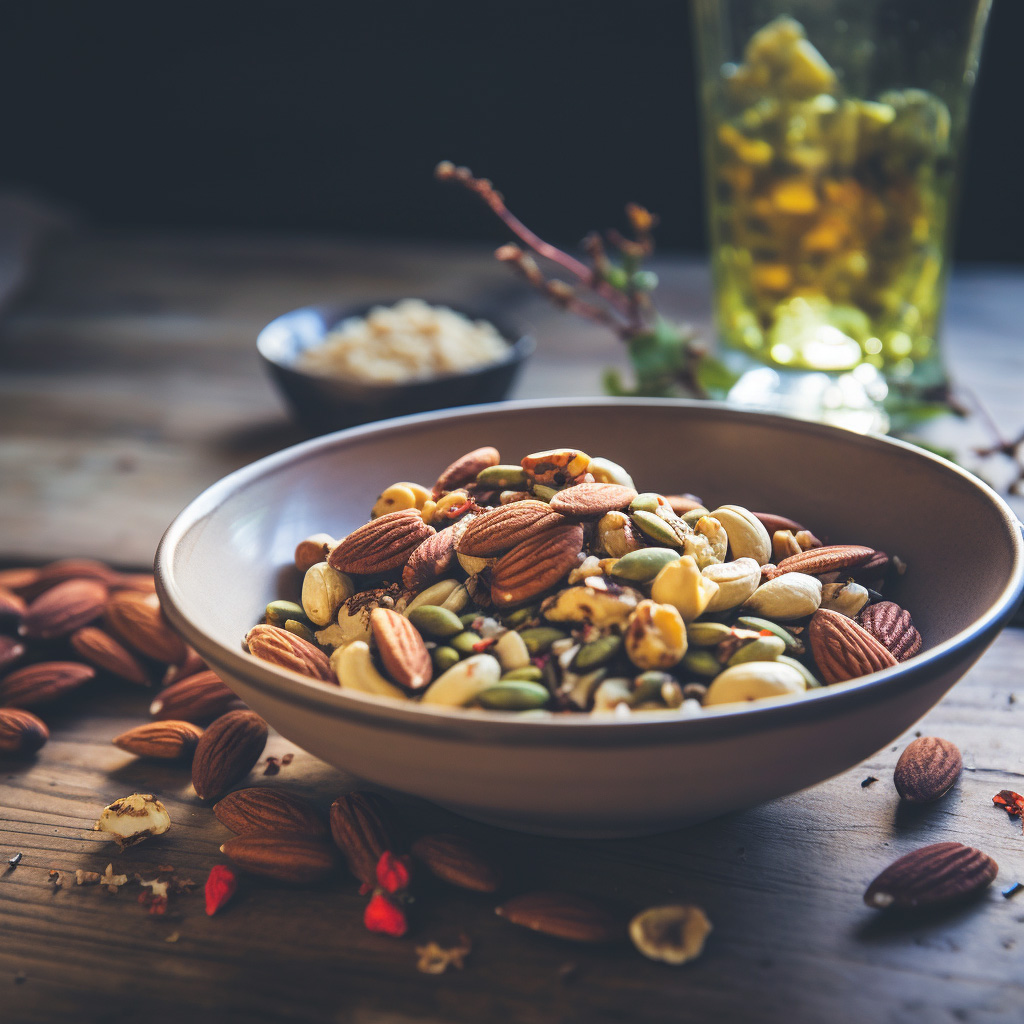The perimenopause can often feel like embarking on a hormone rollercoaster ride without a clear end in sight, accompanied by unpredictable bouts of hot and cold flashes. These symptoms can unleash devastating waves of rage, irritability, and inexplicable emotions, leaving many women feeling overwhelmed and conflicted in their relationships. It’s a transformative period where the body transitions from fertility to non-fertility, signaling the winding down of the “baby factory” and a redirection of resources towards self-nurturance. Despite the unwelcome changes that may masquerade as signs of aging, this new stage of life offers a chance for profound self-discovery and growth.
Navigating the hormonal shifts presents an opportunity for women to prioritize self-care, reconnect with their inner body’s wisdom, and embrace their true selves with newfound confidence and resilience. As they shed societal expectations and familial obligations, they emerge more robust, more authentic, and less tolerant of anything that doesn’t align with their genuine desires and values.
To help guide you on this mission, we will explore the calming oasis of supplements and nutrition, waiting patiently to ease the turbulence and lead you toward a new form of empowerment. Note this article is not medical advice, please consult your doctor for any concerns.
What Exactly Is Perimenopause?
Before delving into potential solutions, it’s essential to grasp the complexities of perimenopause. This phase mirrors the tumultuous process of puberty as your hormones go through another poignant change. And yes, your boobs may grow bigger again.
Perimenopause can last anywhere from four to ten years before the final menstrual period and is characterized by fluctuating estrogen and progesterone levels, heralding the transition into menopause. This can mean as early as the thirties to the fifties years of age for women.
These hormonal shifts manifest in a range of symptoms, including hot flashes, mood swings (quick to be emotional and irritable without reason), night sweats, unexplained weight gain, fatigue, brain fog, loss of muscle, and disrupted sleep.
Perimenopause marks a natural chapter in every woman’s journey, yet its effects can diverge significantly from person to person. Regrettably, the predominant discourse dwells on the downsides, portraying it as a passage into the ‘crone’ years, overshadowing the potential for significant spiritual and emotional development. However, recognizing these challenges as the gateways to newfound self-assurance and wisdom—the treasures awaiting the end of the rainbow—is the first step toward seeking solace and empowerment.
The Supplement Solution
As a powerful resource for perimenopausal women, supplements and nutrition can help alleviate symptoms and bring balance to the body during this transitional time. While every woman’s experience is unique, incorporating certain supplements and foods into your daily routine may help ease some of the symptoms associated with perimenopause. Here are a few key options to consider:
The Symphony of Our Cortisol, Thyroid, and Hormones: Perimenopause is less of a solo act and more of a carefully orchestrated symphony, with different systems within the body playing their parts.
The endocrine system, responsible for hormone production, works alongside the autonomic nervous system (particularly the sympathetic and parasympathetic branches) to maintain the body’s equilibrium, or homeostasis, in the face of these changing dynamics.
Equally crucial are the thyroid and adrenal glands, which interact with female reproductive hormones and participate in the dance of metabolic rate, energy balance, heat production, and the body’s response to stress. When the balance is disrupted, such as during perimenopause, the symphony that is our health can, unfortunately, turn into an off-key cacophony.
Riding the Wave: Boosting Your Nutrition Game
Perimenopause is an excellent opportunity to take it easier and adopt a go-with-the-flow attitude to avoid raising your now trigger-happy cortisol levels where the body’s needs fluctuate dramatically. Fortunately, our dietary and supplement choices can gently corral our symptoms to milder expressions to none, offering relief and stability.
Incorporating whole foods abundant in phytoestrogens, such as soy products, certain nuts, and sweet potatoes or yams, proves invaluable in balancing hormonal fluctuations. These plant-based compounds mimic estrogen in the body, helping to alleviate symptoms like hot flashes and mood swings.
Additionally, prioritizing omega-3 fatty acids found in fatty fish and flaxseeds can provide a dual solution for both body and mind during perimenopause. These essential fatty acids mitigate the inflammatory response, promote cardiovascular health, and support optimal brain function. By nourishing the body with these nutrient-rich foods and optimizing with supplements and adaptogens, individuals can foster resilience and vitality, combating the challenges accompanying this transformative phase of life.

Soy Products: Soy products such as tofu, tempeh, and soy milk contain phytoestrogens, plant-based compounds that mimic estrogen in the body. These compounds can help balance hormonal fluctuations during perimenopause, reducing symptoms like hot flashes and mood swings. Incorporating soy into your diet can provide a natural and effective way to manage the hormonal changes accompanying this phase of life.
Nuts: Certain nuts, such as almonds and walnuts, are rich sources of phytoestrogens and healthy fats. These nutrients support hormonal balance and contribute to overall well-being during perimenopause. Adding a handful of nuts to your daily diet can provide a convenient and delicious way to help your body through this transition.
Sweet Potatoes or Yams: Sweet potatoes and yams are nutritious root vegetables with vitamins, minerals, and antioxidants. They also contain phytoestrogens, making them beneficial for hormonal balance during perimenopause. Additionally, their high fiber content supports digestive health and helps regulate blood sugar levels, which can fluctuate during this phase.
Fatty Fish: Fatty fish like salmon, mackerel, and sardines are excellent sources of omega-3 fatty acids, essential nutrients crucial in reducing inflammation and supporting cardiovascular health. Including fatty fish in your diet, plus an additional omega-6 supplement, can help alleviate inflammation-related symptoms and promote overall well-being during perimenopause.
Flaxseeds: Flaxseeds are another excellent source of omega-3 fatty acids and lignans with phytoestrogenic properties. These seeds can help balance hormone levels and reduce symptoms like hot flashes and mood swings. Incorporating ground flaxseeds into your meals or smoothies is an easy way to reap their benefits during perimenopause.
By including these foods in your diet, you can give your body the nutrients it needs to navigate the challenges of perimenopause with greater ease and resilience.
The Power of Supplements

Supplements are the support crew in this transformational quest. They are the allies you never knew you had, offering remedies from the natural world to calibrate your internal landscape. From vitamins to minerals, herbs, and botanical extracts, supplements boast a pharmacopeia of potential solutions to the various symptoms of perimenopause.For instance, black cohosh, often recommended for its potential to reduce hot flashes, is thought to work similarly to estrogen. Meanwhile, St. John’s wort is a classic remedy for the feel-good mood management.
It’s important to note that supplements have great promise but should be discussed with a healthcare provider, especially if there are any underlying health concerns.
Recommended Supplements for Perimenopause
- Vitamin B Complex—This group of vitamins, including B6 and B12, is essential for maintaining hormonal balance and supporting the adrenal glands. They also play a role in energy production, which can be beneficial during fatigue or low mood. In particular, Vitamin B6 is essential for hormone production and metabolism. It can also help alleviate PMS symptoms such as irritability and bloating.
- Magnesium – Many women who experience heightened anxiety, irritability, and muscle soreness during perimenopause found magnesium to have a calming effect on the nervous system. It can also help with muscle tension and cramps, making it ideal for better sleep quality. Magnesium glycinate is especially recommended for perimenopause and menopause. It is easily absorbed and less likely to cause digestive issues.
- Vitamin D – This essential vitamin plays a crucial role in bone health, which can be affected during perimenopause due to decreased estrogen levels. It also supports the immune system, helping to fend off colds and infections. Additionally, vitamin D has been linked to mood regulation, with adequate levels potentially contributing to improved mental well-being and a more balanced emotional state. Moreover, emerging research suggests that vitamin D may play a role in reducing the risk of certain chronic diseases, such as heart disease and diabetes, while aiding in weight loss efforts and supporting calcium absorption. This multifaceted vitamin is essential for overall health and well-being during perimenopause; supplementing with calcium becomes especially important during perimenopause
- Omega-3 Fatty Acids—These essential fatty acids are known for their anti-inflammatory properties, which can help combat joint pain and stiffness often experienced during perimenopause. They also support brain health and may improve mood. They are usually found in Fish oil or Flaxseed oil. Aim for a daily intake of 1-2 grams of Omega-3 fatty acids.
- Evening Primrose Oil—This classic go-to PMS remedy is an excellent supplement for perimenopause. Packed with gamma-linolenic acid (GLA), an omega-6 fatty acid, it’s renowned for reducing inflammation and promoting hormonal balance. Just as effective as it was during puberty, this oil can also ease breast tenderness and other PMS symptoms. Plus, cracking open the capsule and applying the oil to dry facial areas offers additional relief during this transitional phase.
- 5-HTP – This supplement is a precursor to serotonin, a key neurotransmitter in mood regulation and sleep. By boosting serotonin levels, it has the potential to alleviate symptoms of depression and improve sleep quality during perimenopause. Additionally, 5-HTP may offer benefits such as reducing anxiety, supporting cognitive function, and aiding in weight management, making it a valuable ally for navigating the challenges of perimenopause.
- Probiotics – The gut microbiome plays a crucial role in overall health, influencing hormone balance, mood regulation, and digestion. By taking a probiotic supplement, you can promote the growth of beneficial bacteria in the gut, which may alleviate digestive issues commonly associated with perimenopause. Maintaining a healthy gut microbiome can improve immune function, reduce inflammation, and enhance nutrient absorption, providing comprehensive support for women during this transitional phase.
Adaptogenic Herbs for Perimenopause and Menopause
Adaptogenic herbs play a vital role in addressing the challenges of perimenopause and menopause by helping the body adapt to stress and maintain balance. These botanical allies offer holistic support for symptoms like hot flashes, mood swings, fatigue, and sleep disturbances, empowering women to navigate this transformative phase with greater ease and comfort. Here are our top favorite ones.
- Ashwagandha – a revered adaptogenic herb with centuries of use, plays a crucial role in stress management and relaxation. Its adaptogenic properties make it effective in helping the body handle stress, offering a sense of calm during the perimenopausal phase. Moreover, Ashwagandha’s potential to support healthy thyroid function is significant, given the thyroid issues often experienced during perimenopause. By promoting thyroid health, Ashwagandha regulates metabolism, energy levels, and mood, contributing to overall well-being during this transformative stage of life.
- Black Cohosh– emerges as a traditional remedy for alleviating menopausal discomforts like hot flashes and night sweats, making it a valuable asset for women navigating this phase. Beyond its reputation for tackling physical symptoms, this herb also shows promise in addressing mood swings and insomnia commonly associated with menopause. Its long-standing use in traditional medicine underscores its effectiveness in providing relief during this transformative stage of life, offering women a natural option for managing the various challenges that accompany menopause.
- Macca – Experience the pleasure of incorporating Maca – The Peruvian Ginseng – into your menopausal self-care routine. Paired with Cacao, Maca creates a delightful beverage, enhancing your experience through mindful intention and ceremonial practice. Red Maca, renowned for its potency and efficacy, is particularly beneficial for women during perimenopause and menopause. Its hormone-balancing properties help regulate estrogen levels and alleviate symptoms like hot flashes, mood swings, and menstrual irregularities. Additionally, Red Maca’s ability to boost energy levels and support bone health and libido is a valuable supplement for enhancing women’s overall well-being during this transformative stage of life.
- St. John’s Wort – renowned for its effectiveness in alleviating symptoms of mild to moderate depression often experienced during perimenopause, has become a popular tea. Numerous tea brands now offer St. John’s Wort as a flavor option, recognizing its potential to provide a delightful taste and therapeutic benefits for emotional well-being. This inclusion reflects a growing awareness of the herb’s mood-balancing properties and ability to offer a soothing and uplifting experience. It is a favored choice among individuals seeking natural remedies for mood support during transitional phases like perimenopause.
- Chaste berries – also known as Vitex agnus-castus, emerge as an ideal ally for women navigating the complexities of perimenopause due to their profound hormone-balancing properties. During this transitional phase, hormonal fluctuations can trigger a myriad of symptoms, including irregular periods, mood swings, and hot flashes. Chaste berries exert their therapeutic effects by acting on the pituitary gland, helping to regulate the delicate interplay of hormones such as estrogen and progesterone. By promoting a harmonious balance of these hormones, chaste berries can alleviate menstrual irregularities, mitigate mood disturbances, and alleviate symptoms commonly associated with perimenopause. Furthermore, their gentle yet effective nature makes them suitable for long-term use. They offer women a natural and sustainable approach to managing the hormonal shifts inherent in this transformative stage of life.
- Rhodiola Rosea proves reliable support for women navigating perimenopause. Its adaptogenic qualities effectively combat stress and fatigue, offering a sense of balance and vitality amidst the hormonal fluctuations of this phase. In essence, it provides a natural solution for managing the challenges of perimenopause, allowing women to face this transitional period with resilience and vigor.
Special Mention: NMN (Nicotinamide Mononucleotide)
While NMN hasn’t yet been explicitly recognized as a perimenopause supplement, the groundbreaking research of Dr. David Sinclair, a leading expert on aging at Stanford, presents promising findings aligned with the goals of perimenopausal women. Some claims even suggest that NMN could potentially delay menopause altogether. Regardless, NMN has shown remarkable results in improving cognition and sleep, boosting metabolism, aiding weight loss, enhancing muscle performance, and combating signs of aging, among other benefits.
Mushrooms – Reishi, Lion’s Mane, and Cordyceps contain compounds that may alleviate fatigue, mood swings, and memory issues in women. Lion’s Mane mushrooms, particularly, show promise in easing perimenopausal symptoms like hot flashes and cognitive decline. Rich in bioactive compounds, these mushrooms regulate hormones and enhance cognitive function, offering a potential alternative to conventional treatments. Incorporating them into daily diets may improve overall well-being. Additionally, a 2010 study found that Lion’s Mane mushroom consumption reduced feelings of irritation and anxiety in menopausal women. Mushrooms also act as adaptogens, aiding stress management and potentially enhancing sleep quality, possibly due to compounds like flavonoids and phenols found in Reishi mushrooms, according to research conducted in India.
Honourary mentions:
Calcium – As estrogen levels decline during perimenopause, there is an increased risk of bone density loss, making women more susceptible to conditions like osteoporosis. Calcium is crucial for maintaining strong bones and teeth, and supplementing with calcium becomes especially important during perimenopause to mitigate this risk. Adequate calcium intake, whether through supplements or dietary sources like dairy products, leafy greens, and fortified foods, helps support bone health and reduce the likelihood of fractures and osteoporosis-related complications. By prioritizing calcium intake, women can safeguard their skeletal strength and overall well-being as they navigate the hormonal changes of perimenopause.
Vitamin C – As estrogen levels decline during menopause, the initial signs of skin aging may appear, including fine lines, wrinkles, and decreased skin tone. Vitamin C counteracts this decline, working diligently to support collagen production and offset the effects of reduced estrogen levels. Additionally, by reducing oxidative stress, vitamin C can support adrenal gland health and their ability to produce hormones, including progesterone.
Supplements are indispensable, but while crucial, they are but one element in making perimenopausal years more bearable. The armor of good nutrition, fitness, and self-care wellness practices is equally important, if not more so. Nutrition is not just about what we consume; it’s about curating a lifestyle that nourishes and revitalizes.



